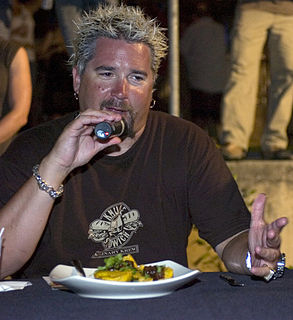Цитата Рона Финли
Люди в моем районе настолько оторваны от поставок свежих продуктов, что дети не отличают баклажан от сладкого картофеля. Мы должны показать им, как заземлиться в прямом смысле этого слова.
Связанные цитаты
Соседство — это слово, которое стало звучать как День святого Валентина. Как сентиментальное понятие, «район» вреден для городского планирования. Это приводит к попыткам превратить городскую жизнь в имитацию городской или пригородной жизни. Сентиментальность играет сладкими намерениями вместо здравого смысла.
В наших городах есть продовольственные пустыни. Мы знаем, что расстояние, которое вы проживаете от поставщика свежих продуктов, является одним из лучших показателей вашего здоровья. А в центре города у людей нет продуктовых магазинов. Им приходится сесть на автобус и долго ехать, чтобы добраться до источника свежих продуктов.
Этот корень [картофель], сколько ни готовь, безвкусный и мучнистый. Она не может сойти за приятную пищу, но она дает пищу, достаточно обильную и достаточно здоровую для людей, которые просят только прокормить себя. Картофель не зря ругают за ветреность, но какое дело ветрености для крепких организмов крестьян и рабочих?
По мере того, как мы богатеем, предметы первой необходимости — еда, одежда и кров — становятся очень небольшой частью общих расходов. И у людей достаточно денег, чтобы покупать вещи, которые улучшают их духовно, и я имею в виду слово «духовный» не обязательно в религиозном смысле, а в том смысле, что оно увеличивает ваше чувство благополучия.
Когда меня просят дать определение «южной кухне», я обычно обращаюсь с этим вопросом к своей аудитории и спрашиваю их, что они думают. Я слышу такие ответы, как жареный цыпленок, сом, барбекю, листовая капуста и сладкий картофель. Это прекрасные примеры, потому что они исторически обоснованы. Каждое блюдо можно проследить до людей, которые принесли эти кулинарные традиции на юг. Сегодня эти продукты занимают центральное место в основной кулинарной грамматике американского Юга.








































